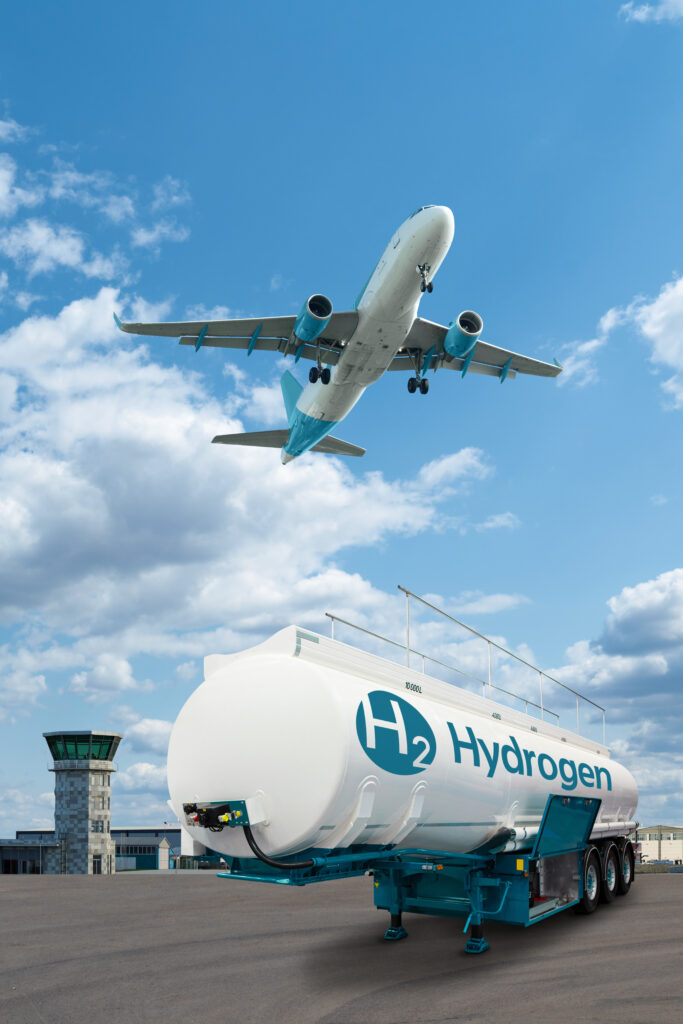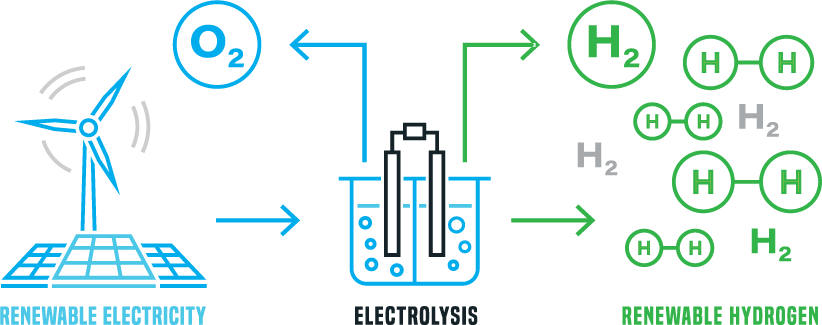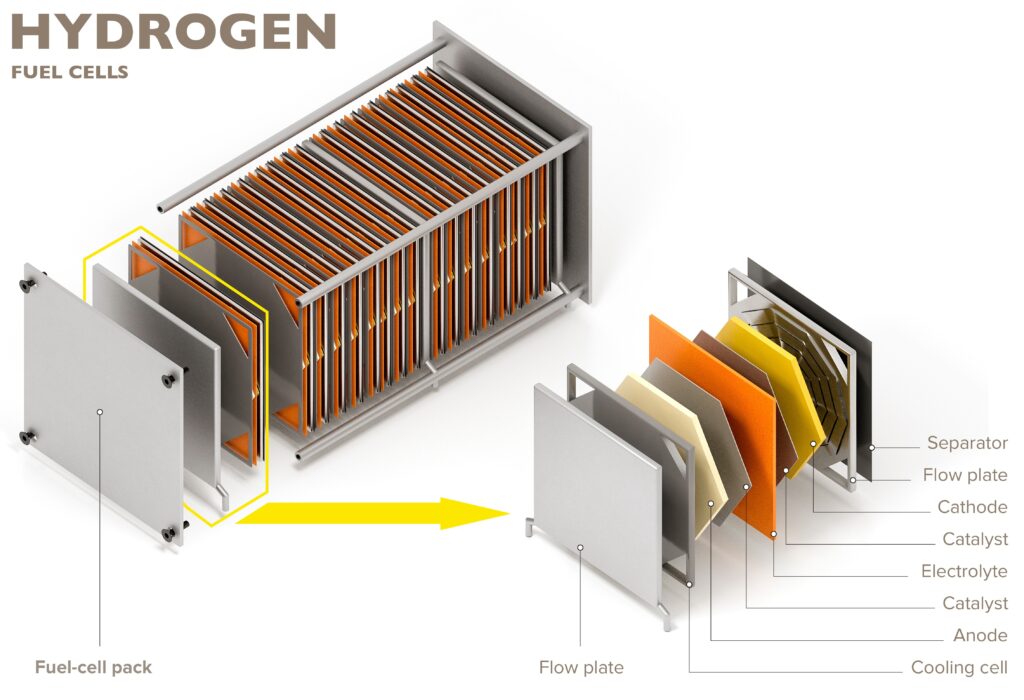Hydrogen
The European green energy transition policy envisages the transition from fossil energy to CO2 neutral. The most affordable methods to achieve this are currently solar and wind.
However, unlike fossil energy sources, both the sun and wind are highly dependent on weather conditions and the use of energy is tied to the time of production thereof. In order for the generated green energy to be controlled and managed, it is necessary to employ energy storage devices so that the power can be used at the necessary time.
The choice of energy storage devices is the most difficult aspect in the energy production system. Already all solar parks in Latvia, with a capacity above 500kW, are equipped with fleet management devices that can be controlled remotely by the network operator. So that this does not happen, the generated energy must be accumulated in a storage device. The use of rechargeable batteries is impractical due to the limited service life and limitations of their operation. In our opinion, the most promising direction in the development of energy storage is the use of hydrogen.


Through the electrolysis of water using generated electricity, it is possible to
obtain hydrogen with subsequent energy storage capacity. Hydrogen can then
be converted back into electricity using fuel cells.
Although the transformation Electricity - hydrogen - electricity is not very
efficient (the efficiency is 35 percent), the low cost of electricity production
and the ability to sell it back to the grid when, for example, the price on the
exchange is the highest makes it a lucrative strategy.
Increases in system efficiency are also possible by using hydrogen directly
without power generation.
At MP Industries, we are looking even further ahead. It is also possible to sell electricity, for example, by charging electric vehicles at the time of electricity production. It is also possible to sell hydrogen directly to consumers that have vehicles with hydrogen fuel cells.
One of the concepts for the development of transportation of the future involves light transport over short distances using electric vehicles and long-distance commercial cargo transportation using hydrogen fuel cells.
A real-world example of this – the first hydrogen fuel cell buses in the world are already being used in Riga.

We believe that the future belongs to the development of the hydrogen industry and it is necessary to develop the infrastructure and the topic of hydrogen energy much further.
The use of hydrogen is being explored worldwide. Already, safe and effective systems for storing and transporting hydrogen have been developed and are being put in to use globally. It is crucial to take advantage of this evolution in technology.
Airplanes fly using hydrogen, vehicles drive and drones equipped with hydrogen cells are able to stay in the air for many hours doing a lot of useful work. Heating systems can also be powered by hydrogen.
And, it’s all extremely eco-friendly.

Every project is Unique
At MP Industries, we strongly believe that every project is unique and should be treated as such. There are many ‘out of the box’ solutions but these don’t always fully suit the application. Our approach is different.
Get in touch with our team to discuss your requirements and begin the journey to your tailor-made solution.
Contact Us
Get in touch to discuss your requirements with our always helpful and friendly team.
